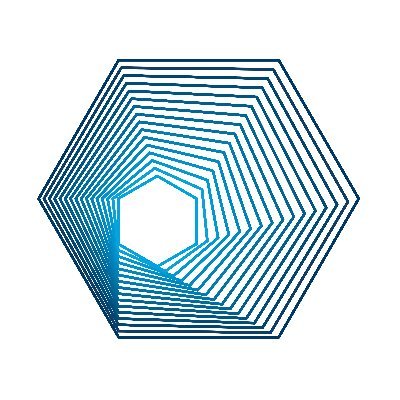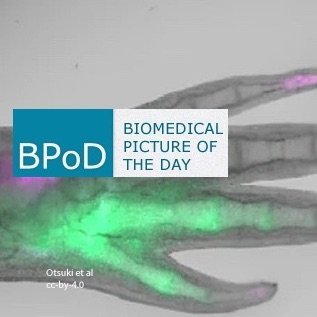
Daniel Weir
@DanielWeirIAV
Followers
398
Following
2K
Media
20
Statuses
148
MRC PhD Student @CVRinfo investigating the intercellular spread of influenza A viruses | Member of the @CVRHutchinson group.
Belfast, Northern Ireland
Joined January 2017
🚨🔎 Out now in @PLOSPathogens! 🔎🚨 This project has taken us @CVRinfo @UofGMVLS on a wild and wonderful journey. I am excited to share our story of how influenza A viruses (IAVs) exploit cell death to facilitate its covert spread. N/1 https://t.co/tA89zMQMAH
4
18
41
Lytras lab? For spring? Actually groundbreaking! Congratulations Spyros! What an incredible lab and PI you will make.
Guess the news is officially out! Extremely excited to announce that I will be starting my own laboratory at Institut Pasteur @institutpasteur this coming spring! Slight change to my office window view from Tokyo Tower🗼 to the Tour Eiffel. 🇫🇷
1
0
1
New preprint alert!! 🚨🚨🚨in collaboration with the Letko and Baric labs! Just in case you're tired of sarbecoviruses, this time we looked at ACE2-using merbecoviruses! specifically the first HKU5r-CoVs detected in mink a couple of years ago. https://t.co/IGWGN8LiIA
biorxiv.org
The emergence of novel coronaviruses from animal reservoirs continues to pose a significant zoonotic threat. Here, we investigate the evolutionary origins and virological properties of a recently...
2
14
23
Great investigative work and thread by @Mhairi_Jan et al.! Congratulations 👏
🚨Are we overestimating viral immunity in people with HIV?🚨 In our new study, we found that a widely used lab test might give false positives for people with HIV who are on certain types of medication (integrase inhibitors) Here’s what we found 🧵1/n
2
0
3
📃 A Hidden Glitch: How HIV drugs can distort virus immunity tests @Mhairi_Jan & colleagues found a flaw in widely used immunity tests. HIV drugs can interfere with lab results, causing false positives that mislead our understanding of immune responses. https://t.co/ghuTcQ7HIy
1
4
10
Flu virus spreads via tunnelling tubes it induces between cells: tube formation correlates with onset of apoptosis 📷 @DanielWeirIAV et al @CVRHutchinson lab @UofGlasgow in @PLOSPathogens ➡️ https://t.co/lp0lYvCRgM
0
6
15
🦠 Influenza's Great Escape New research from @DanielWeirIAV & colleagues reveals that flu viruses use secret tunnelling nanotube-like structures to escape your immune system. Full video: https://t.co/RE4hCbJL8E Read: https://t.co/sXeKnCSAXP
@CVRHutchinson @UofGSii @UofGMVLS
1
11
18
Can flu spread to another cell without ever exiting the first one? Yes! Through little tunnels (TNTs) that form between cells! Check out Daniel's exciting paper and beautifully animated thread below to find out more!!! 🔬🔬🧫🧫
🚨🔎 Out now in @PLOSPathogens! 🔎🚨 This project has taken us @CVRinfo @UofGMVLS on a wild and wonderful journey. I am excited to share our story of how influenza A viruses (IAVs) exploit cell death to facilitate its covert spread. N/1 https://t.co/tA89zMQMAH
3
8
26
To all the coauthors, Cal Bentley-Abbot, @JMcCowan97, @Onlycloney, @Robertslab1 and @CVRHutchinson, thanks for all your hard work! We are grateful for the funders, reviewers, @PLOS and our many fantastic colleagues @CVRinfo.
0
0
5
This work uncovers a novel way in which IAVs can exploit cell death to propagate infection. This time it does so by ensuring its continued spread after it has exhausted the life of its host cell, and the often hostile environment of the lung awaits.
1
0
4
Is apoptosis then required for IAV direct cell to cell spread? Well, not only do IAVs frequently undergo direct cell to cell spread, but this can almost be completely prevented with the inhibition of apoptosis! N/10
1
0
3
💡we found that whilst apoptosis alone had no effect, TLS induction by IAVs required both virus replication and the onset of apoptosis. Overall, our data reveals that apoptosis induced through IAV replication is responsible for the triggering of TLSs. N/9
1
0
4
🔍Clue 3: the induction of TLSs correlated with the onset of apoptosis. Furthermore, inhibition of apoptosis prevented the ability of IAVs to induce TLSs. However, induction of apoptosis with drugs, independent of infection, did not induce TLS formation. N/9
1
0
4
🔎Clue 2: induction of TLSs was consistent between IAV strains having either filamentous or spherical virion morphologies. This was in despite of several curious similarities between TLSs and budding IAV filaments. N/8
1
0
3
🔎Clue 1: the induction of TLSs did not occur through the release of paracrine innate immune signals, but did require intracellualr IAV replication. N/7
1
0
4
Satisfied that TLSs could be relevant to within host IAV spread, we set out to find how IAVs were triggering their formation. For this investigation we embarked on a systematic hunt for clues, using in vitro cell culture systems. N/6
1
0
4
Firstly, we wanted to see if these structures formed at the natural site of IAV infection. We collaborated with the wonderful @Robertslab1 lab and we could see, for the first time, evidence of TNT-like structures (TLSs) forming from infected cells within the lungs of mice. N/5
1
0
4
One mechanism of IAV direct cell to cell spread in vitro is through the formation of long, thin and fragile membrane connections known as Tunnelling Nanotubes (TNTs). Impressively, IAVs trigger the formation of TNTs but it was unknown how they were doing this. N/4
1
2
6
Direct cell to cell spread of IAVs describes the mechanisms that deliver viral genomes to new cells, independent of a cell free virus particle. This can allow infection spread even in the presence of antiviral drugs and neutralising anitbodies. N/3
1
4
4
@CVRHutchinson we are fascinated about what makes IAVs infectious and what shapes it's within host spread. The complexity of this fundamental biology is underappreciated and many questions remain. A perfect example of this is the direct cell to cell spread of these viruses. N/2
1
0
4





